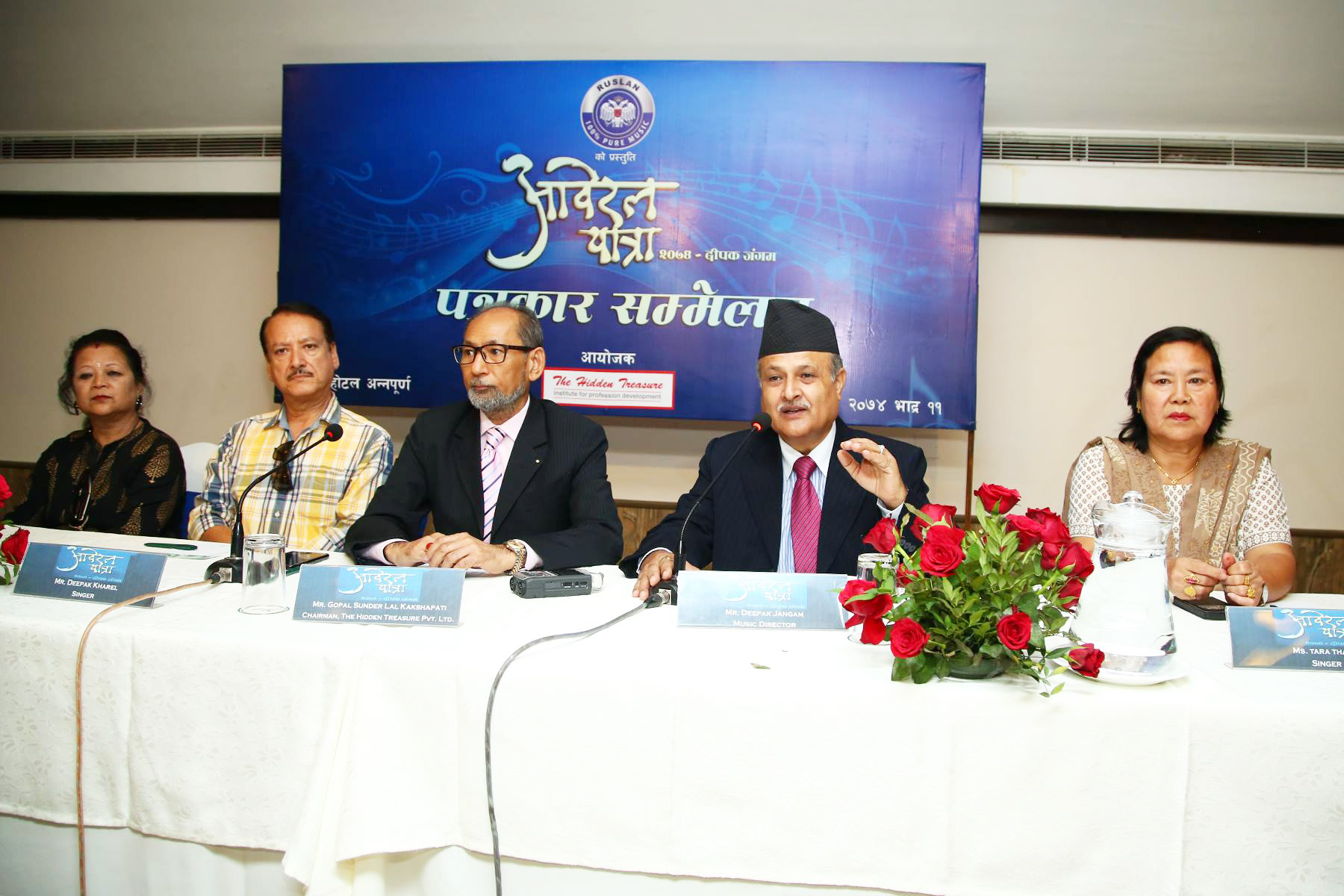August 9, 2016: Abhaya and the Steam Injuns recently released their fourth studio album, titled Looking for Love. With Abhaya Subba Weise leading the line-up, along with Nikesh Karki, Nabin Thapa Magar, Sonam Lama Bhutiya and Rajiv Rinchen Palzar, the band has played their way into the heart of Nepali music-lovers everywhere. In this interview, the band talk about their latest presentation, the process behind creating it and their hope for the future. Excerpts:
Tell us about your new venture.
This is our fourth album—it’s called Looking for Love. Oftentimes, when people talk about love, they think it to be romantic love where boy meets girl, when love is really so many layers. We think that love is people wanting to be accepted. When you look at pictures of conflict areas and see war breaking out and infecting the world that you realise we are living in the post-apocalyptic world theorised so often in fiction. And despite the grim that accompanies such a world, we are still looking for love because love is the only way we can regain all that we have lost. So that’s where our album gets its name from.
How long have you been working on this project?
Very long, actually. We’ve been working on our album for at least two years now, mastering and perfecting everything to our liking until we were satisfied with our work.
What inspired you to create this album?
Our songs are based on day-to-day life and how it ebbs into the greater journey of life, and the losses that we deal with along the way, personal losses that everybody must suffer through eventually, such as the death of a loved one or the death of our own self someday. Our whole album is quite versatile since we can’t really afford to have any one theme or thread to define our music in this day and age—that’s too old school! We have to move with the times, we have to be one with the millennials, and we have to make sure that every song of ours is heard because we put a lot of effort and love into its making.
Tell us about an experience that comes to mind when you were working on this album.
When we were in Delhi, we met Bipul Chhetri and were having dinner at Bipul’s place and this is where it gets interesting. So we wanted to make momos and Aninda Bose, the guy who is mixing all of our stuff, was also there and he’s a really nice guy. We were looking for a sound engineer to mix our songs at the time and it so turned out that Aninda happened to be that guy! It was just funny that we met him at Bipul’s place, at a dinner party, and we’re so lucky that we have such a great sound engineer at our hands. All because of momos!
Would you like to comment on the music scene in Nepal?
This year is great for music lovers, I think, because there are a lot of good bands who are launching their albums. There’s Bipul Chhetri with his new album Maya, there’s Cobweb and 1974 AD and ourselves who are coming up with new music so there’s a lot of exciting stuff to anticipate this year. The Nepali music industry continues to evolve and wow listeners.
Any advice for aspiring musicians?
I can’t very well predict where the music scene in Nepal is heading in the next five or ten years. But in the meantime, if you’re a new musician, don’t expect music to support you because it’s not going to happen. You need to be working, and you need to have that extra something, and then you need to support your music because there needs to be people who realise this need and who are determined to keep doing it, to support music. We cannot give up; we cannot lose faith in what music is all about. Just because you’re not making money isn’t reason enough to quit. Yet there are so many people who quit and it means that you don’t believe in your talent at all. This is why we need people who are determined to rise above this crisis, people who believe in their music and are willing to support music because they love it until one day, music might eventually support them back.
By Kripa Shrestha







